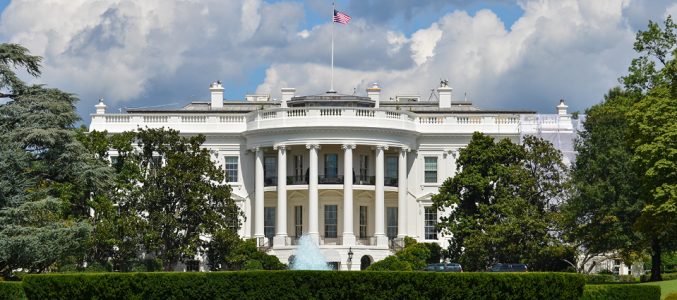Trump wins U.S. presidential election: market implications
Although the final votes are still being tallied, Donald Trump has won the U.S. presidential election.

The Republicans also retained their majorities in both the House of Representatives and the Senate.
Heightened uncertainty
Mr. Trump's election introduces significant uncertainty to the outlook for government policy, economic activity, and the actions of the U.S. Federal Reserve (Fed). Market volatility has spiked in reaction to the election results, and we expect this to continue over the coming weeks amid speculation about his likely policy agenda; however, we stress the importance of not overreacting and waiting for clear announcements of priorities.
Prioritizing tax cuts and looser regulation
The president-elect and House Republicans have placed large tax cuts and corporate tax reform at the heart of their fiscal agenda, and Mr. Trump has also advocated a large increase in infrastructure spending. With Republicans also controlling the Senate, this implies a likely loosening of fiscal policy from late 2017 and into 2018, although fiscal conservatives in Congress may seek some offsetting cuts to other areas of discretionary spending. There is a strong prospect that the regulatory noose will loosen across the financial services, energy, telecommunication services, and healthcare sectors.
Trade policy will be pivotal for the economy
At face value, the above policy agenda would boost economic activity over the next two years; however, Mr. Trump has pledged to increase trade protection and reduce immigration—policies that would simultaneously weaken economic growth and increase inflationary pressures. It is plausible that the new administration will not ramp up tariffs on Mexican and Chinese imports, content instead to bury the prospect of new trade agreements and make more use of enforcement clauses in existing agreements.
The Fed
Underthat scenario, there is a greater chance the Fed will delay increasing U.S. interest rates into 2017, awaiting more clarity on the market and policy outlook. However, once the noise dies down and it becomes clear that fiscal policy is set to become more expansionary, the Fed will likely recommence lifting its policy rate and at a faster pace than would have been the case had the Obama administration policies been maintained.
Should Mr. Trump prove to be serious about pursuing a more protectionist policy agenda, the negative consequences for economic activity and corporate margins could easily offset the benefits of fiscal easing. This would prevent the Fed from increasing interest rates for some time. With particularly disruptive outcomes, the Fed may even consider easing policy. The subsequent effect on inflation expectations and unit labor costs would determine when and how much the Fed tightens once the turmoil subsides.
Market implications
The result has led to a significant risk-off move in the markets, with short-dated bonds rallying modestly and risk assets, including equities, declining substantially. The U.S. dollar has been broadly stable on a trade-weighted basis, but it has depreciated against the major developed currencies and appreciated against emerging-market currencies, especially the Mexican peso.
A downbeat mood could last several weeks, but the medium-term implications for markets depend on the actual policies of Mr. Trump and what can be negotiated through Congress. The direction of the U.S. dollar will be influenced by a number of forces in the medium term, including whether fiscal policy is loosened and a repatriation tax is implemented, as well as the shape of trade agreements. We expect government bond markets to be supported in the near term, but the medium-term impact will depend on the policy mix.
In equities, once volatility subsides, lower corporate taxes and looser regulatory policies could provide a lift to markets; however, any increase in the U.S. dollar or rise in interest rates would be negative. This environment will likely create opportunities for bottom-up security selection in both equity and bond markets. Even in a benign trade policy scenario, firms with extensive global value chains or that are reliant on migrant labor would face a more uncertain future, while firms facing less onerous regulatory requirements stand to benefit. If the new Trump administration pursues an aggressive unwinding of policies that have supported globalization, an extended period of weakness for risk assets is likely.
Clearly, it is too early to fully assess the implications of the election results on markets, politics, and the economy, but Standard Life Investments will be providing clients and investors with updates when there is more clarity on the policies of the new Trump administration.
Important disclosures
Important disclosures
Investing involves risks, including the potential loss of principal. Stocks can decline due to adverse issuer, market, regulatory, or economic developments, and the securities of small companies are subject to higher volatility than those of larger, more established companies. Foreign investing, especially in emerging markets, has additional risks, such as currency and market volatility and political and social instability.
MF328938






